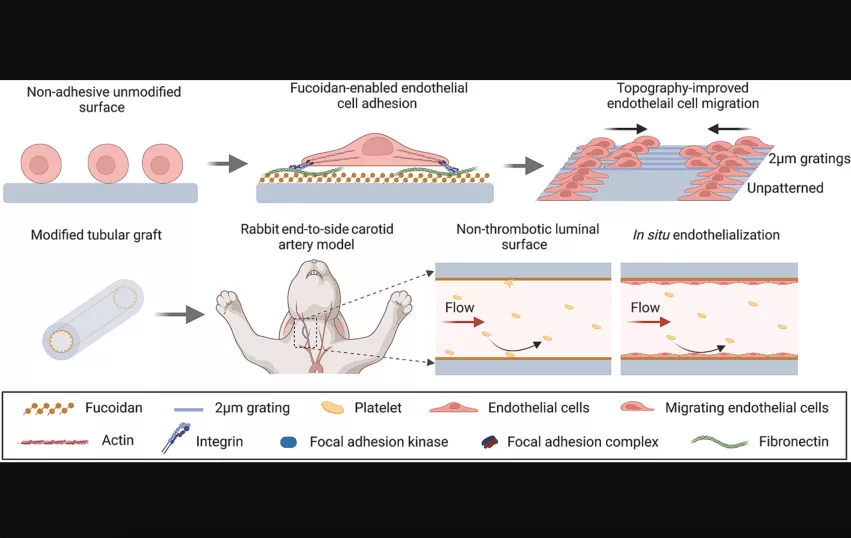Seaweed molecules could lead to big improvements for heart surgery patients
Fucoidan, a natural material derived from seaweed, may be able to boost cardiac surgery outcomes, according to a new analysis published in Bioactive Materials.[1] The research is still limited to small animal models thus far, but the study’s authors feel good about their early results and see potential for this breakthrough to provide significant value.
The team behind the findings believe that the fucoidan, which combined with a technique known as micropatterning, can promote the growth of vascular cells in patients who undergo heart bypass surgeries. This could help synthetic blood vessels, limiting the risk of potentially fatal blood clots.
“There is a crucial need to develop synthetic vascular graft materials that will increase the rate of long-term functions,” lead author Evelyn Yim, PhD, a chemical engineering specialist with the University of Waterloo in Canada, said in a prepared statement.
Using vessels taken from the patient still represent a gold standard for bypass surgeries, but the team emphasized that this is not always a realistic treatment option. That is when artificial vessels enter the equation—and there is still room for the safety and effectiveness of these vessels to improve.
Yim et al. developed the new-look technique themselves, testing it successfully with small animals and now planning research on larger animal models. After that, the team hopes they will be able to start examining this technique’s potential in humans.
“A functional, off-the-shelf, small-diameter vascular graft will help save lives,” Yim said in the same statement. “What’s important is that they will be much longer-lasting and allow blood to flow freely.”
Specialists with the department of biomedical engineering at Oregon Health and Science University also played a key role in this investigation.
The full Bioactive Materials study is available here.


